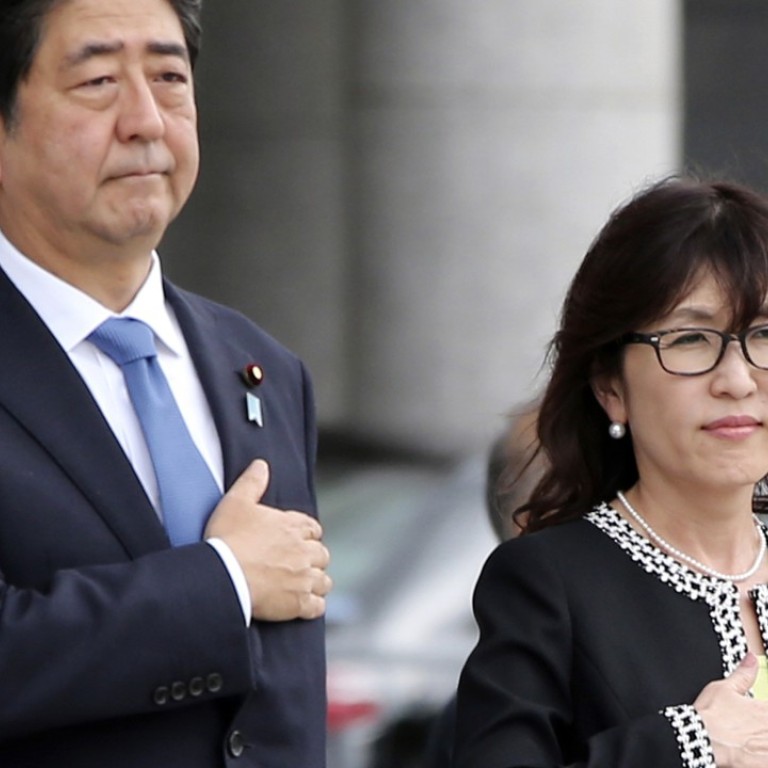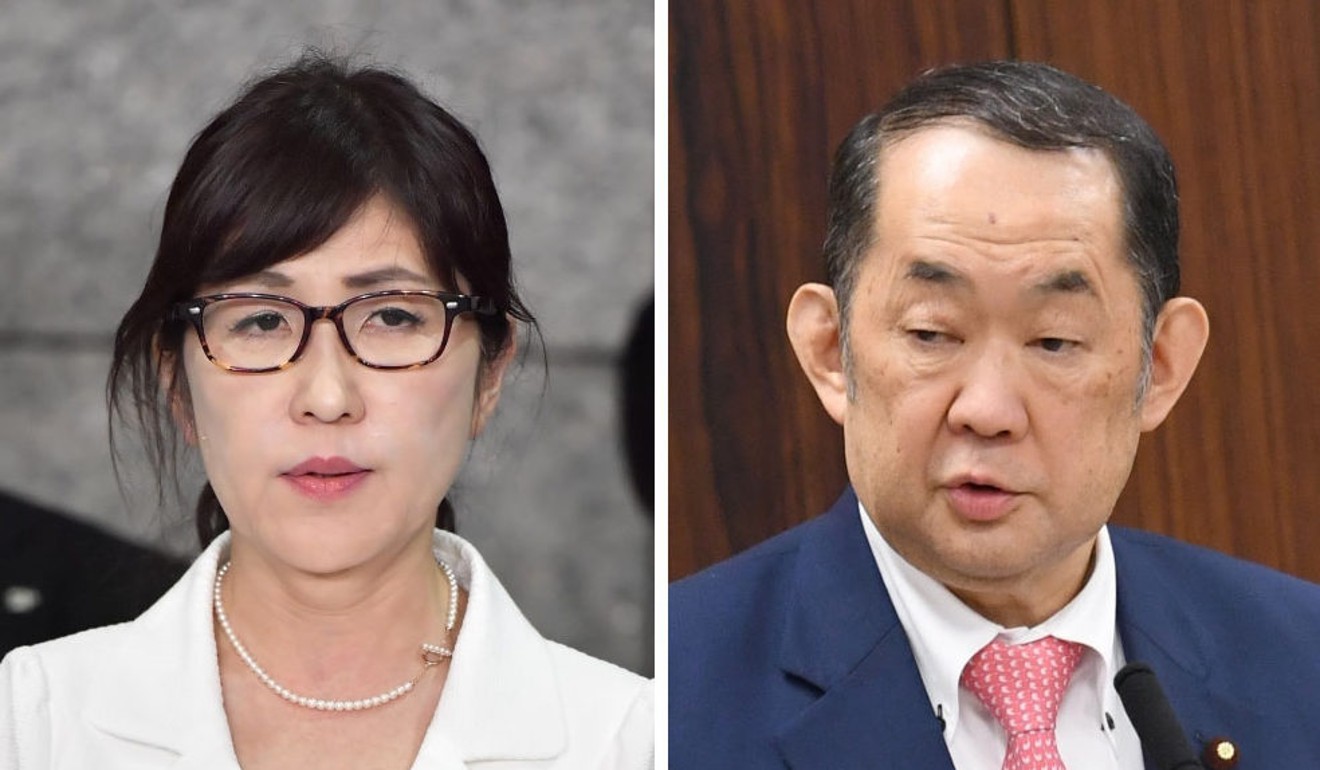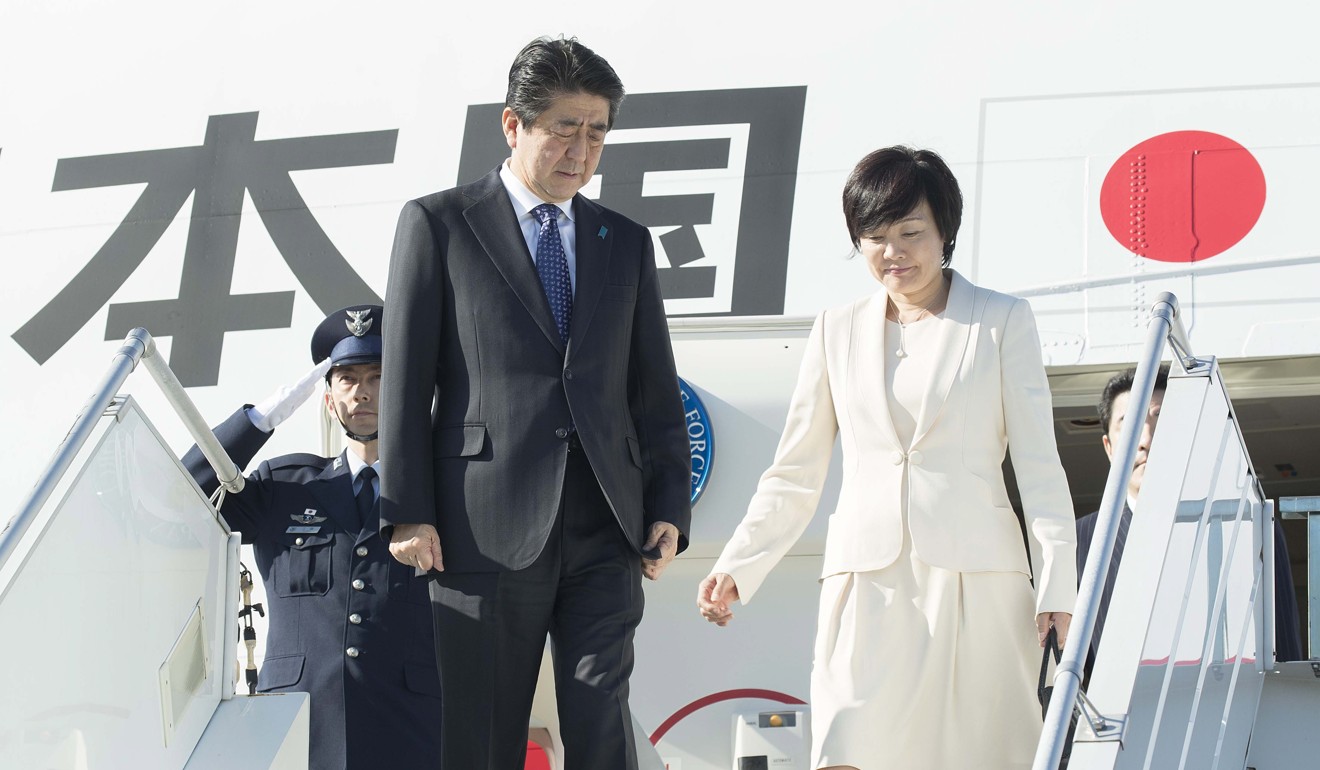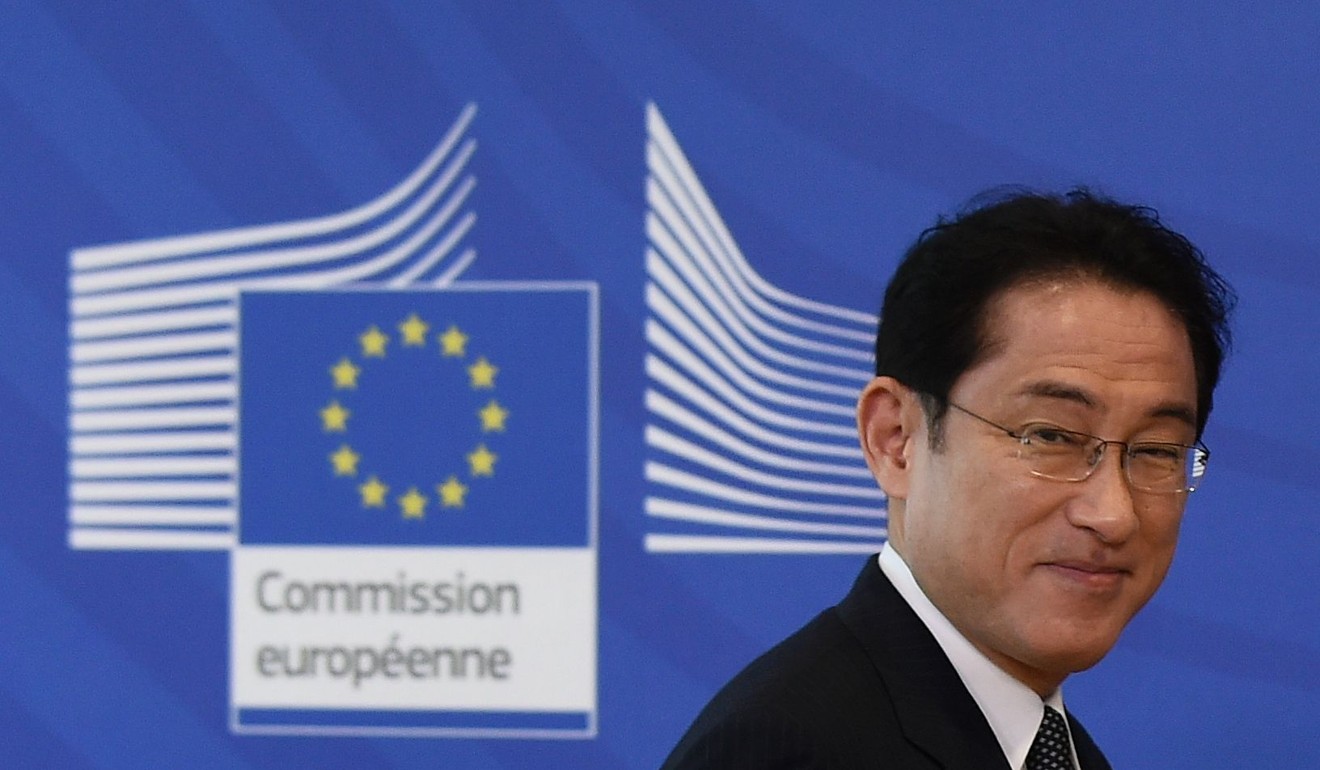
Analysis | Stung by scandal and poor polls, Japan PM Abe may dump gaffe-prone defence minister to save himself
After his ruling party’s worst ever performance in Tokyo elections, Shinzo Abe has cut short his current trip to Europe and expedited a cabinet reshuffle
Japanese Prime Minister Shinzo Abe, hit by his lowest levels of support since taking office after a beating in a Tokyo assembly election, will return a day early from a foreign trip and reshuffle his cabinet and party leaders next month.
But the prime minister, speaking to reporters during a visit to Sweden, indicated he would retain core cabinet members when he was asked whether he would keep trusted hands such as Chief Cabinet Secretary Yoshihide Suga and Finance Minister Taro Aso.
On Friday, Japanese government and party sources said Abe planned to replace his beleaguered defence and justice ministers.
Defence Minister Tomomi Inada, a conservative ally of Abe, and Justice Minister Katsutoshi Kaneda both faced questions about their competency. Each joined the cabinet in the previous reshuffle on August 3 last year.

Support for Abe slumped to record lows in three media polls over the weekend, as public trust in the premier sinks amid a stream of scandals.
The Yomiuri newspaper, generally seen as supportive of Abe’s government, found support for Abe’s cabinet had fallen 13 percentage points from a survey last month to 36 per cent. Polls conducted by NTV and the Asahi daily found similar drops in approval.
Abe appears to have switched into crisis management mode.
Inada is a close ally of Abe and shares his goal of revising the post-war, pacifist constitution, seen by some conservatives as a humiliating symbol of Japan’s second world war defeat. She regularly visits Tokyo’s Yasukuni Shrine, which honours war dead and is seen in China and South Korea as a symbol of Japan’s past militarism.

She said she was out attending a “study session” with some people, though it was not an official duty. Three other politicians serving in top posts at the ministry were also away from the complex around the same time, leading some ruling and opposition party members to question the government’s crisis management procedures.
Inada defended her action at a press conference Friday, saying that she remained informed of the disaster situation and was able to return to the ministry in 15 minutes if need be.
As for Kaneda, his handling of deliberations in the previous Diet session on the controversial conspiracy law provided a target for opposition parties at an inopportune time for the administration.
“It would be unfathomable for (Inada and Kaneda) to remain in their roles,” a senior member of the ruling coalition said Friday.

Senior party lawmakers including Foreign Minister Fumio Kishida and former Defence Minister Shigeru Ishiba are growing increasingly critical of Abe, with local media saying they may challenge his leadership ahead of a general election that must be held by the end of next year.
Abe, meanwhile, said he has no intention of dissolving the lower house and calling a general election any time soon.
“I don’t have (a snap election) in mind at all. What is expected of the Abe cabinet is to produce results,” he said Sunday.
The next House of Representatives election does not have to be held until December 2018, when lawmakers’ terms expire.
Abe’s visit to Sweden was part of a roughly weeklong European tour, which already took him to Germany to attend a Group of 20 summit.
But Abe told reporters he will skip his visit to Estonia, the planned final leg of his trip, and return to Japan sooner than scheduled due to the deadly disaster triggered by torrential rain in southwestern Japan.
“I will swiftly visit the disaster-stricken area and see the situation for myself,” he said.
The prime minister was planning to return to Japan on Wednesday but is now expected to be back on Tuesday.
Reuters, Kyodo, Bloomberg
